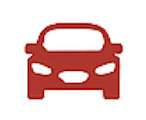A Detailed Look at Belgium's Unique Relationship with Cars
A Country at the Crossroads of European Automotive Influence
Belgium's car culture has long been shaped by its central location in Western Europe, nestled between France, Germany, and the Netherlands. This geographical position has made the country a crossroads for major automotive trends, infrastructure planning, and manufacturing. The Belgian road system is among the densest in the world, reflecting the nation's reliance on personal vehicles and efficient transport logistics.
Due to its proximity to Germany and France, Belgians have access to a wide variety of imported vehicles. German engineering and French design both exert strong influences on Belgian consumer preferences. This blend of cultural influence is evident not only in the car brands that dominate the roads—like Volkswagen, Renault, BMW, and Peugeot—but also in the design of local infrastructure and service stations, which cater to a diverse driving public.
Belgium also plays host to a thriving used car market, largely because of the country's relatively strict car inspection standards and leasing culture. Many Belgians drive leased vehicles for short terms, resulting in a steady turnover of high-quality used cars, which are often exported to Eastern Europe and North Africa. This turnover supports a robust export industry and gives the domestic market access to newer vehicles at competitive prices.
Belgium's Affinity for Motorsports and Rallying
Belgium has a deep-rooted motorsports tradition, anchored by the internationally renowned Circuit de Spa-Francorchamps. Often called one of the most beautiful tracks in the world, Spa hosts a variety of global racing events, including the Formula One Belgian Grand Prix. The region's hilly terrain and unpredictable weather make it a challenging and respected circuit among drivers and fans alike.
Beyond Formula One, Belgium has long embraced rally driving. Events like the Ypres Rally draw thousands of spectators and competitors each year. Local municipalities often close down roads for these events, emphasizing the grassroots popularity of motorsports. Belgian rally drivers, such as Thierry Neuville, have gained international recognition and added to the country's automotive prestige.
Karting is also a prominent entry point for young drivers in Belgium. Many Belgian F1 stars, including Max Verstappen, although Dutch, honed their skills on Belgian tracks due to cross-border proximity. Local karting circuits are well-maintained and accessible, helping sustain the country's pipeline of motorsport talent.
Urban Driving and Congestion Challenges in Belgian Cities
Despite its compact size, Belgium suffers from some of the worst urban traffic congestion in Europe, particularly in cities like Brussels and Antwerp. This is due in part to the country's dense population and reliance on private vehicles. Commuters often face long travel times, and urban planning is still catching up to modern mobility demands.
The fragmented governmental structure of Belgium—with separate regional authorities for Flanders, Wallonia, and Brussels—complicates transportation policy implementation. Infrastructure projects often involve multiple layers of bureaucracy, which can delay much-needed urban upgrades. This has led to patchy solutions and a lack of unified strategies to reduce congestion and promote alternative transportation modes.
To combat these issues, many Belgian cities have begun expanding public transit options and improving cycling infrastructure. Brussels, in particular, has implemented car-free zones and incentivized the use of electric scooters and bikes. However, the transition has met resistance from drivers and businesses that depend on traditional vehicle access, indicating the delicate balance between urban mobility and car culture.
Car Ownership Trends and Environmental Awareness
Belgium has one of the highest rates of car ownership per capita in Europe. For many Belgians, owning a vehicle is not just a convenience but a necessity, especially in rural and suburban areas where public transit coverage is limited. This has fostered a deep-rooted car culture that intertwines personal identity with vehicle choice.
Nevertheless, there has been a notable shift toward environmentally conscious car ownership. Electric vehicle (EV) adoption in Belgium has risen significantly in recent years, driven by government incentives and growing environmental awareness. Tax breaks and subsidies for EVs, alongside expanding charging infrastructure, are slowly encouraging consumers to reconsider traditional fuel vehicles.
Flemish regions have been more aggressive in implementing environmental vehicle policies, such as low-emission zones (LEZs) and scrappage incentives. These efforts reflect a broader European trend, but the Belgian implementation remains uneven across regions. This variation poses both challenges and opportunities for sustainable transportation growth in the country.
Car Clubs, Restoration Enthusiasts, and Collector Communities
Classic car culture thrives in Belgium, supported by a passionate community of collectors and restoration experts. From post-war European models to vintage American muscle cars, Belgian enthusiasts take pride in maintaining historically significant vehicles. Car shows, swap meets, and club events are common throughout the country, particularly in Flanders.
Organizations like the BEHVA (Belgian Historic Vehicle Association) promote the preservation of vintage automobiles and serve as liaisons with governmental agencies for registration and tax benefits. These associations also provide technical support and foster a strong sense of camaraderie among classic car owners.
Seasonal events, like the Zoute Grand Prix in Knokke-Heist, combine luxury car exhibitions with rallies and auctions, attracting international attention. These events reinforce Belgium's role as a niche hub for high-end automotive enthusiasts, where history, craftsmanship, and prestige meet on the open road.
